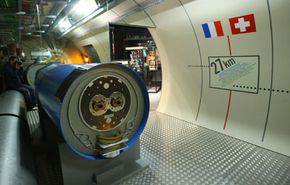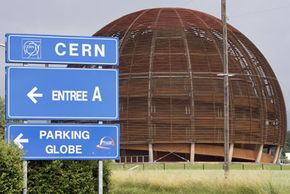Key Takeaways
- CERN's Large Hadron Collider (LHC) could potentially uncover evidence of dark matter, contributing to our understanding of the universe, which could revolutionize physics and our concept of matter.
- While there are concerns about the LHC creating destructive black holes, scientists assure that any black holes would be minuscule, harmless and short-lived.
- Theoretical advancements from CERN's research, such as potential evidence of time travel, could have profound implications, although the practicality and safety of such phenomena remain speculative.
The European Organization for Nuclear Research, also known as CERN, is the world's largest particle physics laboratory. That means CERN studies the tiniest particles in the universe. CERN uses some of the world's most advanced equipment to do this, including the Large Hadron Collider (LHC). By studying the fundamental forms of energy and matter, CERN hopes to learn more about how the universe works.
While CERN is mainly concerned with the fundamental particles of the universe and the laws of nature, it has also spawned other notable advances in science. For example, in 1989, a scientist named Tim Berners-Lee proposed the creation of a distributed information system. That system evolved into what we call the World Wide Web. In fact, the world's first Web page was for CERN [source: CERN].
Advertisement
Still, most of the work done at CERN is meant to do one thing: increase human knowledge of the universe. Many scientists conduct experiments simply to learn more about how the laws of nature work with no thought to applicability. Scientists sometimes call this pure research. That's because the scientists have no motive beyond increasing knowledge itself.
Today, 20 European member states run CERN. These countries share the responsibility of funding CERN as well as the privilege of guiding activities at CERN facilities. Other countries also partner with CERN, using the laboratories for experiments and research.
Many scientists are excited over the prospect of CERN's research, particularly as the Large Hadron Collider prepares to come online. The LHC might shed light on some mysteries that have puzzled physicists going all the way back to Einstein and beyond. But according to some people, it might also bring about the end of the Earth.
How can one organization using a machine like the Large Hadron Collider solve universal mysteries, and could CERN really end all life as we know it? Keep reading to find out.
Advertisement


